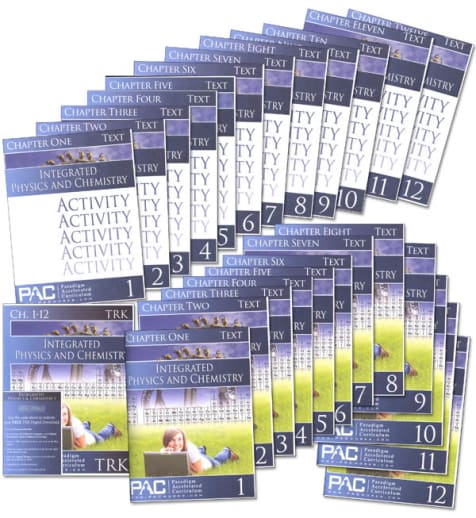Although designed as a high school course, IPC can be an excellent science course for pre-high school students. The full course equates to two high school transcript credits: Physics and Basic Chemistry. Teachers can elect to have students complete all twelve chapters in one year to earn two transcript credits. Another option is to divide the course in half, selecting six chapters to be completed for one transcript credit for Conceptual Physics (chapters 2, 4, 6, 9, 10, 12) or six chapters for one credit in Basic Chemistry (chapters 1, 3, 5, 7, 8, 11).
Includes all texts, activity packets, and Teacher's Resource Kit w/ digital downloads.

